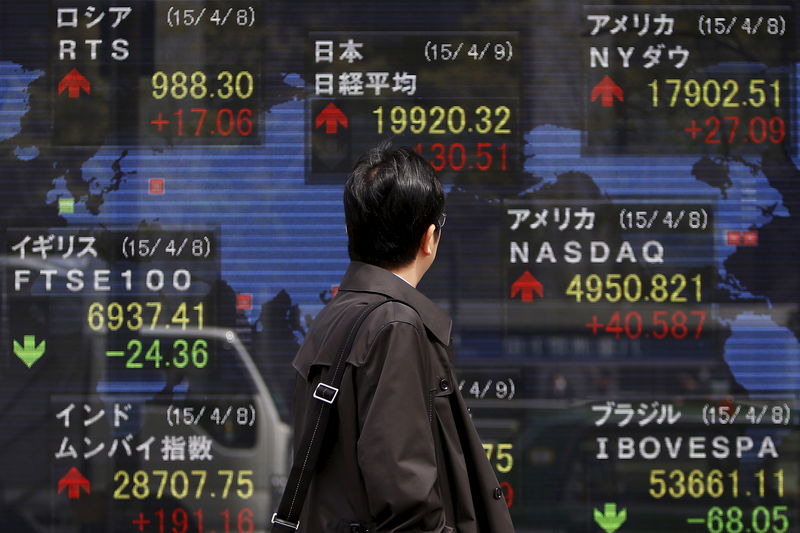By Gina Lee
Investing.com – Asia Pacific stocks were mostly up Thursday morning, breaking two consecutive days of losses after their U.S. counterparts got a boost by a rally in companies that stand to benefit the most from the economic recovery from COVID-19.
China’s Shanghai Composite inched up 0.04% by 10:28 PM ET (2:28 AM GMT) while the Shenzhen Component was down 0.27%. U.S.-China tensions are on investors’ radars, after the Senate Foreign Relations Committee approved a bill aimed at China via a 21-1 vote on Wednesday. The bill proposes closer scrutiny of overseas donations to U.S. colleges and universities among other measures aimed at bolstering U.S. competitiveness in the technology and critical manufacturing industries.
Hong Kong’s Hang Seng Index was up 0.26%. The city could reportedly announce details of a travel bubble with Singapore later in the day, with no-quarantine travel starting after mid-May.
Japan’s Nikkei 225 jumped 2.12% and South Korea’s KOSPI was up 0.60%.
In Australia, the ASX 200 was up 0.44%. Tensions between Australia and China were also up after the former canceled agreements reached between China’s Belt and Road Initiative and the Victorian government.
Chinese President Xi Jinping had called for greater global economic integration and warned the U.S. and its allies to avoid “bossing others around” in his keynote speech at the Boao Forum for Asia earlier in the week.
Traders will continue to sift through corporate results as the earnings season continues, after a spike in global COVID-19 cases knocked global shares below record highs.
Some investors remained optimistic.
“There is strong potential for additional upside in stocks particularly as we move through the earnings season and we start to have more forecasts for what the year ahead is going to look like,” Pacific Investment Management Co. multi-asset strategies portfolio manager Erin Browne told Bloomberg.
“While certainly investors have priced in a lot in terms of normalization in certain segments of the market, I still think that there is room to run,” she added.
Other investors, however, were more cautious.
“Overall, I think markets are still skewed to taking on risk, and I don’t think we’ve seen the final record high by any means in the U.S. stock market or in global equities... at the end of the day, [the selloff earlier in the week] was just markets whipping around as the froth has blown off risk assets,” IG market analyst Kyle Rodda told Reuters.
Meanwhile, the European Central Bank (ECB) will hand down its policy decision later in the day, which is widely expected to remain unchanged and confirm that the central bank will speed up asset purchases under its COVID-19 program until June 2021. The U.S. Federal Reserve will release its own decision in the following week.
